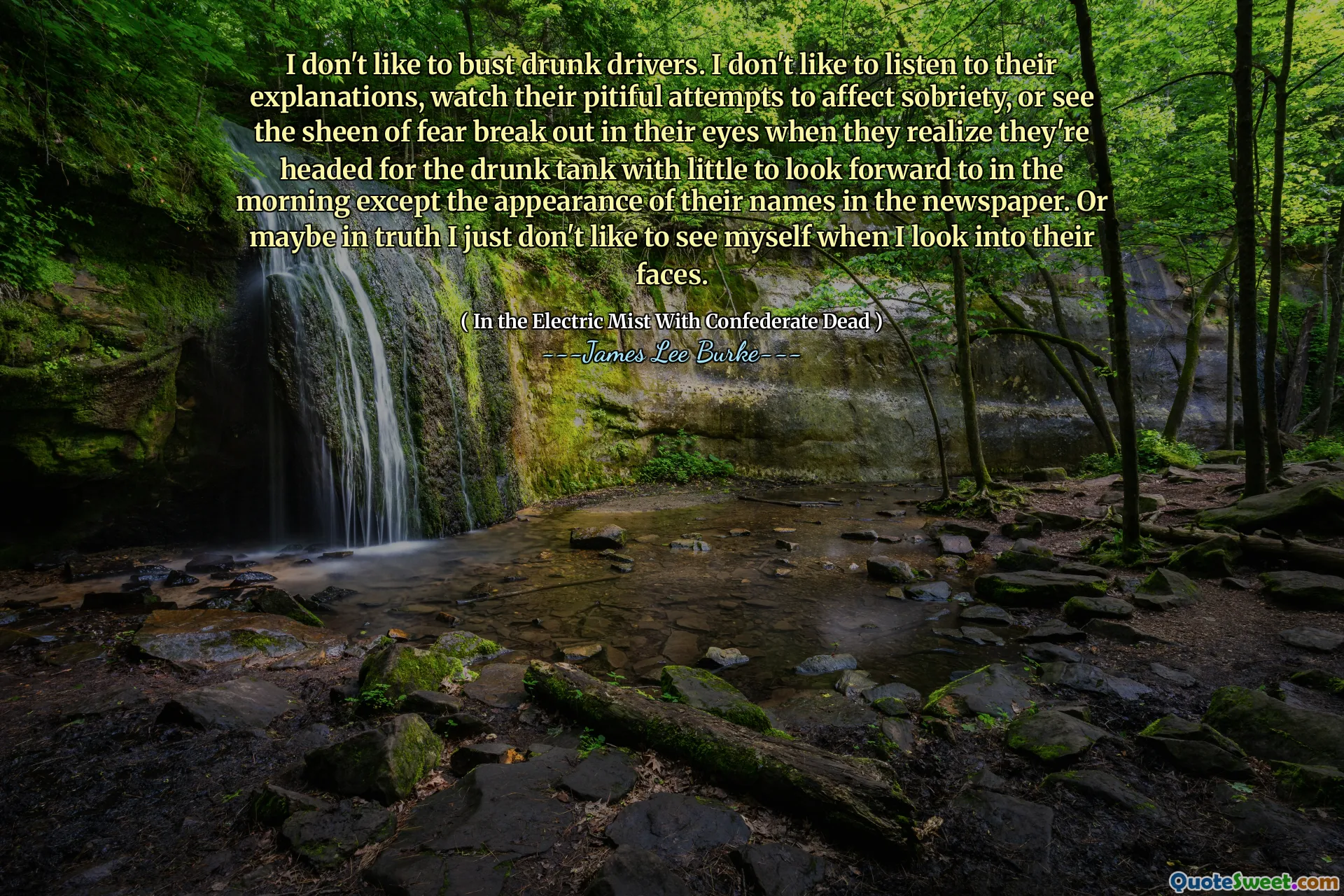
I don't like to bust drunk drivers. I don't like to listen to their explanations, watch their pitiful attempts to affect sobriety, or see the sheen of fear break out in their eyes when they realize they're headed for the drunk tank with little to look forward to in the morning except the appearance of their names in the newspaper. Or maybe in truth I just don't like to see myself when I look into their faces.
This quote from In the Electric Mist With Confederate Dead by James Lee Burke presents a layered contemplation on the act of judgment, personal reflection, and the complexities behind enforcing rules. On the surface, the speaker's aversion to confronting drunk drivers could be interpreted as discomfort with the situation itself. However, as the quote unfolds, it becomes clear that this discomfort is deeply intertwined with a more profound encounter: seeing a reflection of oneself in the faces of those being arrested. This moment of recognition strips away the traditional binary of 'us versus them' and replaces it with a shared vulnerability and humanity.
The feelings elicited here are complex. The driver’s fear and pitiful attempts to explain themselves reflect genuine human weaknesses—frailty, shame, and the inevitable consequences of their choices. The speaker recognizing these traits within themselves challenges the simplistic perspective of right versus wrong, enforcer versus offender. It recalls how easily anyone might find themselves on either side of the law.
This insight invites readers to think about empathy and self-awareness, especially within roles that typically demand authority and detachment. It forces one to confront their own imperfections and consider how personal vulnerabilities color their judgments about others. The quote eloquently underscores the thin line that separates those who enforce laws from those who break them, reminding us of the shared humanity often hidden behind social roles and responsibilities.
In essence, Burke’s narrative probes the uncomfortable yet necessary self-reflection that arises when one's work entails constant scrutiny and judgment of others, revealing a deep empathy and honesty that enriches our understanding of justice and personal responsibility.






